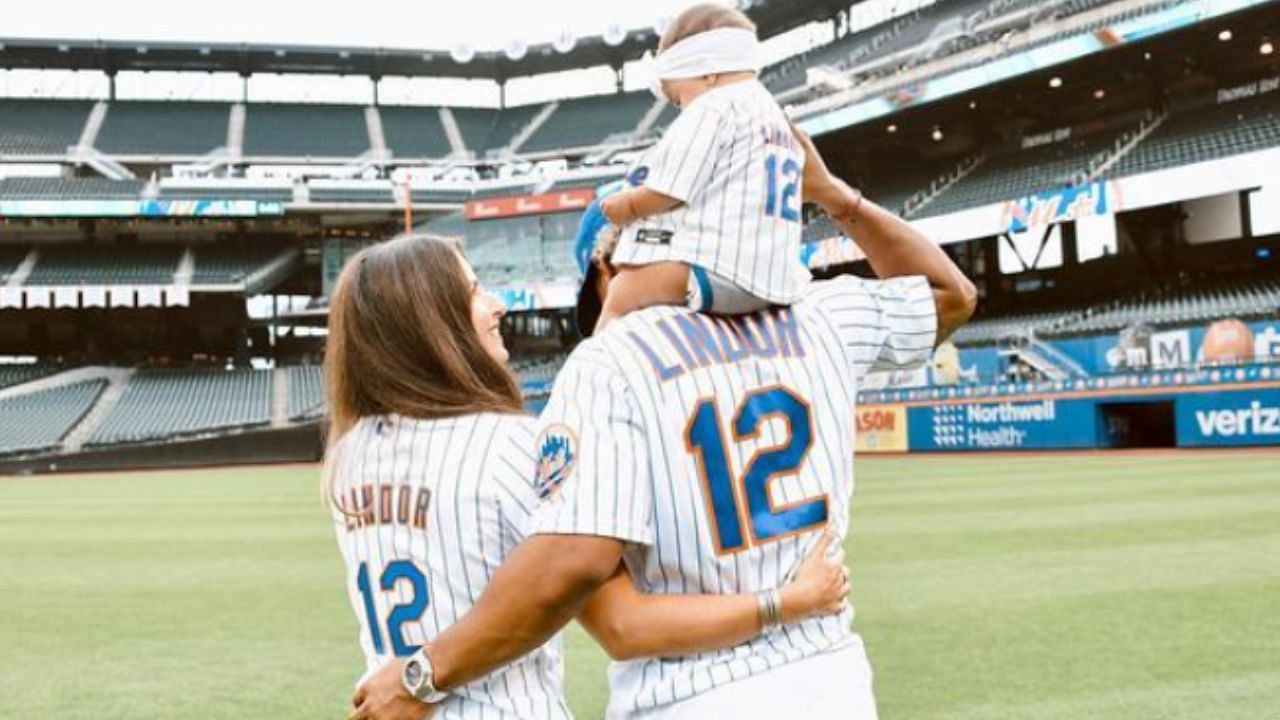
Francisco Lindor's wife Katia's 'male infertility' queries receive expert answers from Dr. Randi Goldman
New York Mets shortstop Francisco Lindor is having an excellent season. With the Mets challenging for a playoff spot and currently in third position in the NL wild card standings, the shortstop has been at the heart of the action for his team both offensively and defensively. An ever-present pillar of support off the pitch is his wife, Katia.
Alongside being the wife of one of the best baseball players in the world and a mother of two, Katia also runs her own podcast on YouTube, The Un-a-Parent Podcast, where she discusses topics related to motherhood and parenting. On September 6, she invited fertility expert Dr. Randi Goldman for her expertise on the matter.
Alongside many other important topics, she asked Dr. Goldman about male infertility and how it may be often overlooked when a couple is unable to conceive.
"The burden is placed on women all the time in society when it comes to childbearing. Probably because of inherent biases that come in our society, which is completely unfair, and because women are the ones carrying the pregnancy. What we know, in real life, is that at least 40-50% of couples coming in with infertility, have some contribution of male factor." [21:00]
"It's also not fair to the men to discount their infertility as well. I think it really is societal expectations for women, what their roles are, that things tend to get blamed on the female partner. A lot of times, it's solely the male factor or a huge contribution of male factor." [22:22]
Lindor married Katia in 2021, and the pair have two daughters - Kalina Zoe, born in 2020, and Amapole Chloe, born in 2023. Lindor's family is regularly seen supporting him and the Mets in home games at Citi Field.
Katia and Dr. Goldman talk about how egg freezing may help with a decline in fertility with age
Along with the aformentioned discussion of male fertility, Katia also talked about egg freezing, which is a method of helping women preserve fertility despite the negative effects that may arise with age. Generally, the recommended age a woman should go ahead with this procedure is between 27 and 34.
Dr. Goldman also had her say on the matter.
"People in their 30s, fertility starts to go down. I think it's a really powerful technology for the right person. It's not that everybody in their early 30s needs to do egg freezing, the likelihood of having infertility in the population is between 1 in 6 and 1 in 8. Most people, thankfully, are not going to require any fertility treatment." [10:22]
Dr. Goldman also deliberated that, as the process is expensive and not covered by insurance, couples contemplating whether to go through with it should first thoroughly go over it with their doctors.